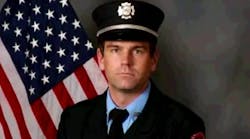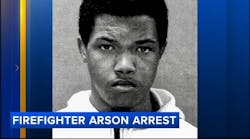Normally people arrive at the end of their journey at a time not of their own choosing. It comes upon them suddenly. People are often left with a number of unanswered questions. There will be goals that were never attained, or things which were left unsaid.
Why is it that I am waxing so philosophical this week? Is this merely another period of introspection or is there something sinister lurking out there in my life? My friends, I believe that I want to share some thoughts on a way of living that will allow each of us to experience two great achievements. On the one hand, you might be able to garner the maximum amount of joy and success that life has to offer. On the other hand, you might be fortunate enough to leave a legacy for generations to come.
Perhaps you remember the Schlitz beer commercial of yesteryear that encouraged us to remember that you only get to go around once in this life. They urged you to buy their beer to make the journey better. I want to offer you an alternative to their beer for making life better: knowledge.
Let me recommend that you pave the road of your life with the sturdy underpinning of solid, fact-based, useable knowledge. Many people have told me that life is great, if you don't weaken. Being human of course presumes a great deal of weakness. It is in your choice of the road to travel, the weakness you encounter and how you handle the weakness that will mark your consequence as a member of the human race.
There was a show that I saw the other night on the Military Channel which caught my attention. It was an episode devoted to the U. S. Air Force para-rescue jumpers (PJ's). A primary focus within the show involved a discussion and portrayal of the training, education, and dedication of these brave people. The strictness with which their training was applied impressed me.
One of the instructors spoke of the need to train their people to react, rather than pause to think during moments of sudden stress and crisis. This seemed like something we should emulate in the fire and emergency medical service world. There are times in life where deep thought is called for and there are times when an immediate reaction is the only thing which time will allow.
Later in the show, there was a segment that spoke of a famous rescue operation that occurred during the Vietnam Conflict. It was the rescue made famous in the movie Bat 21 with Gene Hackman and Danny Glover. There were two interrelated aspects of that real-life operation which came together and allowed for a successful outcome.
In the first place, there was the dedication and self-sacrifice of the helicopter pilots and para-rescue personnel. A number of people gave their lives during the completion of this operation. There was also the emphasis on the training which played such an important part in the success of this particular rescue.
One point that stood out was the interview with the pilot, Lt. Colonel Iceal Hamilton, who was forced to bail out of his damaged EB-66 over enemy territory, after it was struck by a surface-to-air missile. The colonel was 53 years old and only months away from retirement. He had been a pilot during WWII and the Korean War. The Vietnam Conflict was his third war and he was only months away from retirement.
Colonel Hamilton spoke of the sock of the missile hit, the jolt of the ejection from the aircraft, followed by the quiet journey he experienced while drifting down in his parachute. He then spoke of hitting the earth and how suddenly his survival training kicked in. The man spoke of taking certain instinctive actions based upon training that he had take many years prior to that morning in the Republic of Vietnam.
He credited his training with allowing him to function in an alien environment. I noted that the training of the rescue personnel was of such a level that they too operated in an instinctive manner. Is it not the same in our emergency service world?
Are there not times when we need to react suddenly to an unexpected, emergent situation? What makes this problematic for each of us is that we too often face the same situation that the pilot in the episode. The crisis we face may pop up years after we learned the skill needed to escape unscathed from the sudden emergency.
How often do you drill? More importantly, how often do you drill on life and death skills and situations? These two questions can have an impact upon your ability to survive. The key to this involves implanting your life and death skills within your memory bank.
There are learning principles which explain this ability to react suddenly based upon knowledge and training previously acquired in a training environment. Bizjak and Adams (1999) discuss the concept of memory in learning. They suggest that there are three levels of memory. The first is sensory memory. They state that sensory memory is, "





